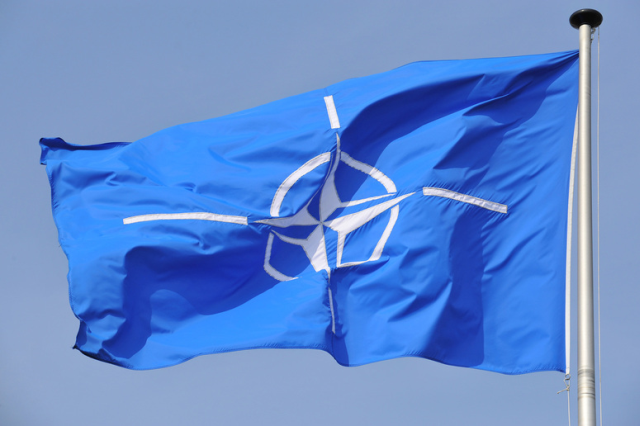NATO and eastern Europe
Although they are now irreversibly on the path to European accession, after signing last year association and free trade agreements with the EU, the Governments in Kiev and Chisinau were not that quick to express willingness to join NATO.

Bogdan Matei, 24.04.2015, 13:24
Their reluctance makes them all the more vulnerable to Moscow’s revanchist ingressions in Eastern Europe. The Republic of Moldova signed a separate action plan with NATO, which also provides for closer cooperation between Chisinau and Euro-Atlantic structures, as well as for the reform and modernization of its security and defense. Moldovan military are already taking part in joint NATO drills.
At present Moldovan forces are training alongside military from Romania, the United States and Britain as part of the Wind Spring operation. Under its Constitution however, Moldova is a neutral state, forbidding the presence of foreign military forces on its territory. In reality however its neutrality has not been recognized at international level.
As they are merely partners and not members of NATO, Ukraine and the Republic of Moldova do not make the object of the principle of collective defense enshrined in Article 5 of the North Atlantic Treaty, which states that an attack on one ally shall be considered an attack on all allies. Nevertheless, NATO has declared its readiness to support the territorial integrity of these two states and to contribute to upholding stability in the region.
Upon his visit to Chisinau, the US Deputy Supreme Allied Commander in Europe Adrian Bradshaw expressed readiness to support Moldova in a way that preserves its neutrality, independence and sovereignty and observes the interests of the entire region. In turn, the new Moldovan Defence Minister Viorel Cibotaru referred to Bradshaw’s visit as a momentous step towards consolidating relations with NATO.
The Moldovan official believes relations are on an upward trend, considering the special interest of NATO for Eastern Europe. Security expert Iurie Pintea also believes NATO is Moldova’s most important political and military partner. He told our Chisinau correspondent that NATO’s support amounts to millions of dollars worth of aid.
Iurie Pintea: “What happened in Ukraine shows that our defence systems are not ready. Cooperating with organizations that are trying to come up with collective solutions to common challenges is paramount for us”.
Pundits also point to the lack of political will to support Moldova’s bid to join NATO within the Moldovan Parliament. The Liberal Party, an outspoken champion of NATO accession, have this year entered opposition, while the remaining political factions are still reticent, without voicing however any viable alternative to NATO.






























